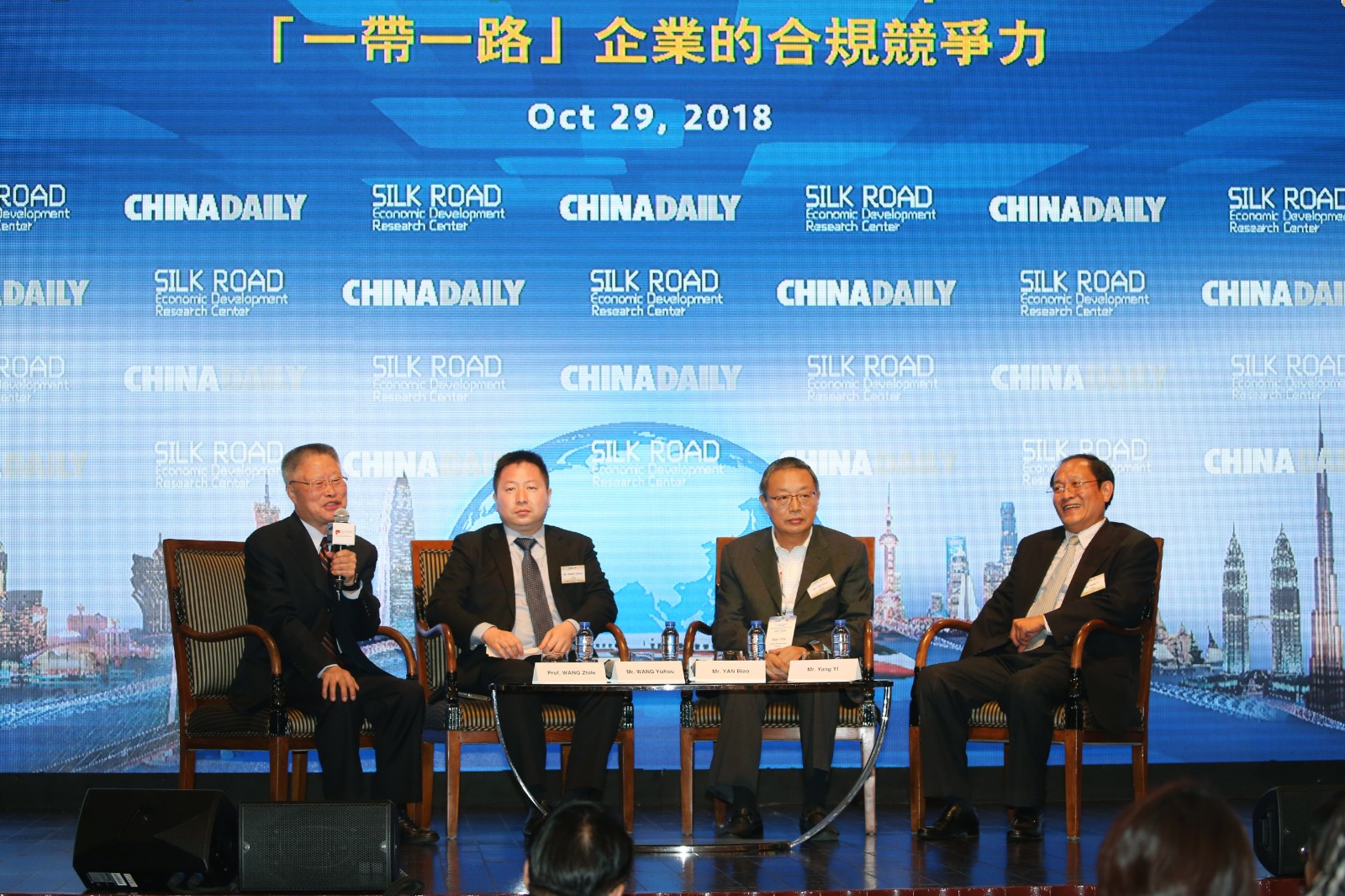2018-10-29
Zhou Mo and Chai Hua

Corporate compliance is becoming a new challenge in Chinese companies’ exploration of international markets, and government and enterprises should make joint efforts in that direction, officials and industry insiders said. They made the call at a keynote luncheon during the Belt and Road Conference 2018, co-organized by China Daily and the Silk Road Economic Development Research Center, in Hong Kong on Monday. Competition rules for global enterprises have changed as corporate compliance is being placed in an increasingly important position, said Wang Zhile, vice-president of the China Enterprise Compliance Promotion Alliance. “When Chinese enterprises, especially State-owned enterprises, go global, they’re facing a new way and a new rule of global competition. It’s obvious that Chinese enterprises are facing serious challenges,” he said. “If they could understand and cope with the changes, they could achieve leapfrog development and create new experience of growth for enterprises in developing countries.” Wang cited Zhejiang Geely Holding Group as an example. The Chinese car manufacturer established its own compliance system in 2014, setting up a compliance committee at its headquarters and deploying a chief compliance officer to deal with the issue specifically. In Geely’s acquisition of US flying car startup Terrafugia last year, the US made a thorough examination of the Chinese company’s compliance, and concluded that Geely had fully complied with the rules. “The issue of corporate compliance stands out as enterprises grow bigger,” said Wang Yizhou, general manager of the corporate affairs and compliance management office at China Mobile International. He noted that the mobile communication giant attaches great importance to corporate compliance and has carried out many related measures. Moreover, it had recently created a comprehensive system, providing an office, a committee and an executive dedicated to corporate compliance. “In our industry, it could have drastic influence on the development of enterprises if they failed to control the risk of their operation. So, it’s one of our most significant works,” Wang said. Yan Biao, director of legal affairs at China Resources Group, said the company’s long-term operation in Hong Kong has had a profound effect on the company’s management. The State-owned enterprise, founded in Hong Kong eight decades ago, has a wide range of businesses worldwide, covering consumer products, energy, real estate and finance. In going global, it has encountered some unique regulations in various places, and many of them are new problems that had emerged recently, Yan pointed out. But, he emphasized that enterprises also need to distinguish corporate compliance from pure business negotiation. “Enterprises, as the subject of the market, should learn how to adapt to these changes, and I believe these issues could be solved eventually as we understand more about the rules and communicate more with our partners.” The central government is attaching great importance to the issue of corporate compliance with a growing number of Chinese enterprises going global under the Belt and Road Initiative. President Xi Jinping stressed at a meeting marking the fifth anniversary of the initiative that it’s important to regulate Chinese enterprises’ investments and operation behaviors to ensure that their operations are lawful and compliant. Yang Yi, former deputy director-general of the economic affairs department and former head of the commercial office at the Liaison Office of the Central People’s Government in the Hong Kong Special Administrative Region, highlighted the importance of the government’s role in the process. “When the government formulates policies, it needs to ensure they’re in line with international rules. For example, they have to meet World Trade Organization rules on transparency, subsidy, and so forth,” he said. It is also the government’s duty to strengthen publicity in corporate compliance and help enterprises organize related training, he said. “Government and enterprises should work together to promote compliance,” he said. Wang Zhile noted that Hong Kong could play an “irreplaceable” role in this respect. “Not only is Hong Kong familiar with international rules, it also knows the Chinese mainland’s condition well,” he said. “The city has a regulated management system and a sound legal network. Both the SAR government and enterprises are acting in full compliance. Besides, Hong Kong has a lot of compliance supervision and service institutions. We hope Hong Kong could play its irreplaceable role in promoting the construction of corporate compliance in the Belt and Road Initiative.”